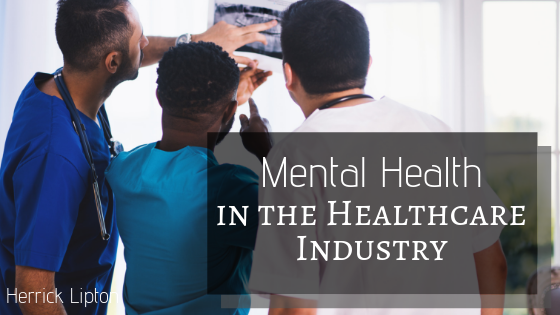There are few jobs more stressful than those in the healthcare industry. Not only do medical professionals regularly come into contact with sick people, but they also see people on their worst day and under the scariest of conditions. The people they deal with every day are worried, sick, angry, and afraid. They look to doctors and nurses for answers they don’t always have and expect divine miracles from mere mortal, flesh, and blood human beings. The hours are long, the surroundings often unpleasant, and the expectations of their patients are almost always impossible to meet.
It should come as no surprise then, that medical professions have the highest rates of drug abuse, suicide, and depression, not to mention sheer burnout. Part of the problem is in the way in which mental health issues are treated by the very medical professionals that are more inclined than anyone to experience them.
Mental health issues are treated as an entirely separate issue from physical ailments and people that experience them are often viewed as “weak” or “not strong enough to cut it.” Psychologists and psychiatrists themselves are often viewed as “quacks” by more serious medical doctors and surgeons. This animosity towards mental health professionals is often one of the biggest barriers to medical professionals getting the help and support that they need. While it may be the biggest issue, however, is it also not the only one.
Medical professionals are often viewed as being almost godlike in the eyes of patients and their loved ones. They seem to hold life and death in their hands – and they can even begin to view themselves in this way. While they certainly take pride and possibly even a sense of power when they save a life, they can feel completely helpless and powerless when they lose one inexplicably. The truth is, medicine is just far more random than anyone – including medical professionals – is comfortable admitting.
In a sense, however, patients need to see doctors and medical professionals as almost godlike beings, or they would be far more hesitant to undergo the risky procedures that are sometimes required. Medical professionals are, in turn, expected to help maintain this facade, which precludes showing any sign of weakness. As long as seeking mental health counseling is viewed as somehow being “weak” by society, it is unlikely to be a legitimate avenue of help and support for the very people who may actually need it most.
—
Herrick Lipton is the CEO of New Horizon Counseling Center in New York and is also an advocate for mental health. For more information about Herrick or to get in touch with New Horizon Counseling Center for resources, please visit nhcc.us or call 718-845-2620.

